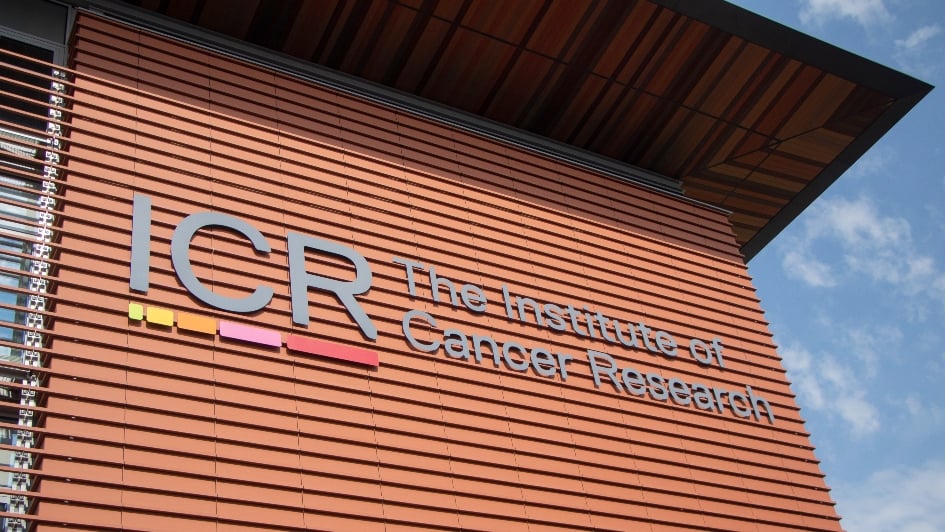
The Institute of Cancer Research has ranked as one of the UK's best higher education institutions at engaging with industry, academic partners and the wider public, in the Government's latest Knowledge Exchange Framework (KEF).
We were in the top fifth of comparable organisations – the top mark – in three categories: intellectual property and commercialisation, research partnership, and public and community engagement.
The strong performance repeats our success in the two previous versions of the KEF in 2021, when it first ran, and last year.
Its ratings are defined by a mixture of data relating to our partnerships, research publications and finances, and reports drawn together and submitted by our professional services teams.
The KEF is a sister assessment to the REF, which looks at research excellence at UK higher education institutions. Both are carried out by Research England, which oversees research funding for English universities.
Industry collaboration
Recent highlights from our work with industry include:
- the renewal of our strategic alliance with pharmaceutical firm Merck KGaA
- a new alliance with Apollo Therapeutics
- a collaboration with immuno-oncology NeoPhore and an AI drug discovery partnership with Bellvitge Biomedical Research Institute (IDIBELL) Barcelona and Vivan Therapeutics
- a new clinical trial of an innovative 'protein degrader' from Monte Rosa Therapeutics, originally a spinout from research at the ICR
- positive results for an ICR-discovered HSF1 pathway inhibitor, now licensed to Nuvectis, in a preclinical study and the launch of a phase I trial
- positive phase III trial results for breast cancer drug capivasertib, discovered by pharmaceutical company AstraZeneca following a programme of ICR drug discovery research in collaboration with Astex Pharmaceuticals
- the Innovation Gateway, a science incubator for life sciences next door to our Centre for Cancer Drug Discovery, is now full.
Public engagement
Over the last three years more than 200 ICR staff and students took part in public engagement activities, helping us deliver over 130 events and reaching nearly 10,000 members of the public.
One of the highlights of our public engagement programme was a collaboration with the Science Museum Group which resulted in our research being showcased in a major exhibition 'Cancer revolution: science, innovation and hope' in London and Manchester.
We're proud of our work to engage with the public throughout the Covid-19 pandemic, when through the commitment of our staff and students we developed imaginative new ways to engage virtually – for example, with a series of online, interactive engagement opportunities that inspired students from minority ethnic backgrounds to consider a career in science.
More recently we also saw the launch of 'We Dance for Life', a creative film bringing science developed in partnership with the London Borough of Sutton and the local Sutton community as part of the London Cancer Hub project.
The film, which brings our science to life through dance, had its premiere in Sutton as part of a local festival celebrating art and science and has gone on to win multiple awards internationally, including the Best Inspirational Film in the European Short Awards.
Dr Jon Wilkinson, the ICR's Director of Business and Innovation, said:
"We're pleased to perform so well in this latest version of the Knowledge Exchange Framework, which has confirmed we're a leader in the UK higher education sector in working in partnership and in engaging with the public.
"Commercialisation, building partnerships and local and public engagement make a big difference to our communities and, ultimately, help us to take our discoveries from inside our walls and into the clinic, for the benefit of people with cancer."
Dr Mariana Campos, our Public Engagement Manager, said:
"It is a pleasure to see our staff and students' commitment to public engagement recognised with the best mark possible and as the leader in our cluster. It's vitally important that the work we do at research institutes like the ICR is really visible to the public – and it makes a big difference, especially by building links with our local communities and by inspiring the next generation of scientists."
